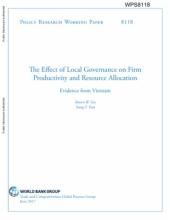Land Library Search
Through our robust search engine, you can search for any item of the over 73,000 highly curated resources in the Land Library.
If you would like to find an overview of what is possible, feel free to peruse the Search Guide.
/ library resources
Showing items 1 through 9 of 107.This topic guide presents an overview of land corruption in rural and urban areas, focusing on:
As human rights defenders around the world put their lives on the line to challenge dictators, destructive multi-national corporations, religious conservatives, and oppressive regimes, there pervades a well-resourced and coordinated strategy of defamation, criminalisation and violence deployed to
This policy brief presents strengths and weaknesses of state and traditional land justice institutions in relation to access, costs and speed in concluding the process of resolving land cases.
Based on a theoretical discussion from global perspective the paper describes present rural land administration and management structure in Bangladesh. Bangladesh is a land scarce country with high-density population.
Registration of land title evidences an indefeasible ownership. However, many people have become victims of fraud. Due to the increase in fraud and the weaknesses of the registration system in the country, this study aims to provide solution to the problem.
The investigative series Indonesia for Sale, co-published by The Gecko Project and Mongabay, exposes the corruption behind Indonesia’s deforestation and land rights crisis.
Community-driven development is a strategy for empowering people to choose their own priorities, project leaders, and monitoring. Many believe that this model results in lower corruption rates.
Governance quality plays a key role in private sector development: competent bureaucrats not only create good policies and regulations, but also effectively implement them to shape the business environment.
A growing body of evidence suggests that criminal activities associated with drug trafficking networks are a progressively important driver of forest loss in Central America. However, the scale at which drug trafficking represents a driver of forest loss is not presently known.









